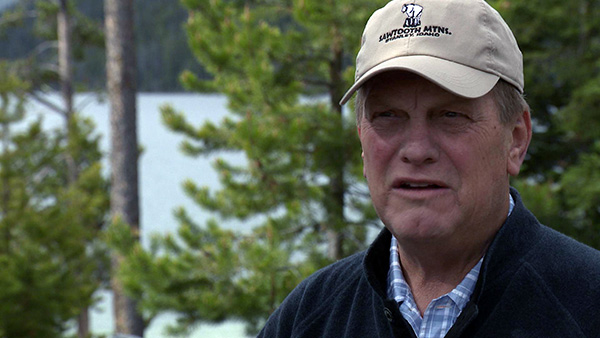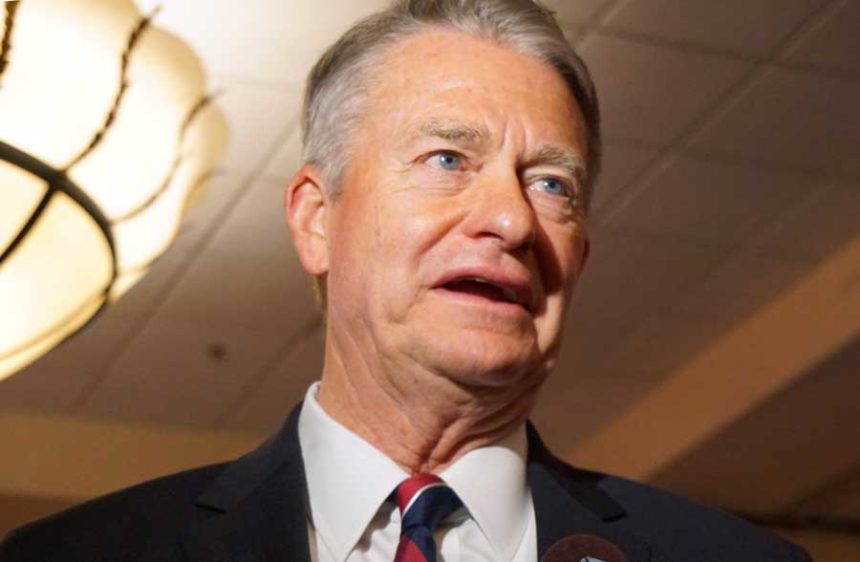Idaho Congressman Mike Simpson is one of the few politicians these days that can genuinely surprise with his words and actions. He surprised me twice in the last week.
The original version of this column was a lengthy critique of Simpson for his surprisingly tepid parroting of White House talking points related to special counsel Robert Mueller’s report. Almost immediately after Mueller’s 448-page report was issued late last week, and certainly before Simpson had time to digest its content, the Congressman from Idaho’s Second District, dismissed it entirely by invoking the “liberal media and Democrat (sic) leadership” that “have spoon fed the American people a false narrative about Trump/Russia collusion.”

Never mind, as journalist Susan B. Glasser noted, that Mueller has in fact produced “surely one of the most damning insider accounts ever written about a Presidency in modern times,” documenting a “breathtaking culture of lying and impunity, distrust and double-dealing.” If you have avoided reading Mueller’s work you are avoiding your responsibility as a citizen. The Republican special counsel, appointed by a Republican, has produced a document for the ages about the shocking conduct of a Republican president. In his heart of hearts Mike Simpson surely knows this amounts to a very serious matter.
Having known Simpson since his days as Speaker of the Idaho House of Representatives, I’ve come to expect more of him. He’s not – at least not often – a blind partisan, and unlike his Idaho congressional colleagues he is solution oriented, a real legislator. So Simpson disappoints with his dismissal of Trumpian misconduct, but then he almost immediately surprises – really, truly, amazingly surprises – by delivering what is surely the most important speech by an Idaho politician in at least 15 years.
Simpson was a featured speaker earlier this week at a conference on salmon and energy organized by the Andrus Center for Public Policy at Boise State University and he displayed all the political leadership and courage that his admirers have come to expect.
“All of Idaho’s salmon runs are either threatened or endangered,” Simpson told a room full of energy producers and users, including the Bonneville Power Administrator, farmers, fish proponents and assorted other advocates. “Look at the number of returning salmon and the trend line is not going up. It is going down.”
It is not enough, Simpson said, to keep salmon from extinction. “We should manage them to bring back a healthy, sustainable population in Idaho.” Simpson said, “I am going to stay alive long enough to see salmon return to healthy populations in Idaho.”
Admitting that it won’t be easy or without discomfort, even pain, Simpson essentially threw down a gauntlet to the standpat policy makers who have slow rolled salmon recovery for twenty years, technically operating the Columbia and Snake River system in clear violation of federal law. Simpson did not call for breeching the lower Snake River dams, the chief culprit to allowing juvenile wild salmon to migrate downriver and eventually return to spawn in Idaho, but critically he also did not rule out removal.

The room was silent as Simpson described the region’s dilemma – and the moral imperative – to preserve its most iconic species.
And the silence was more reverential than shocked. More than 400 regional policy makers and advocates were seeing and hearing something that has become so rare these days as to cause a slack jawed response – they were seeing political guts and real leadership.
It was clear that Simpson and his staff – particularly chief of staff Lindsay Slater, who was pivotal to his boss’s historic legislation creating wilderness protection for the White Clouds and Boulder mountains in central Idaho – has thought long and hard about what it will take to break the regional stalemate over salmon. He’s ready to lead a legislative effort to create a new Northwest Power Act that comprehensively deals with BPA’s fragile financial status, the economic impacts for a host of stakeholders, fixes river operations and restores sustainable levels of fish in Idaho.
Simpson also understands that the Pacific Northwest can once and finally legislative fix these seemingly intractable problems with wisdom that originates in the region or, as he put it, “Someone else will write it and impose it upon us.”
Perhaps the best signal that Simpson has embraced the role of salmon advocate was his moving personal testament to the incredible story of the fish. The congressman, who has come to speak passionately of the wonders of Idaho’s unspoiled places, related a story about his own visit to March Creek, the magically tributary to the Middle Fork of the Salmon, where he watched an adult salmon complete the seemingly impossible voyage from ocean to Idaho backcountry.
“She swam 900 miles to get back to Marsh Creek,” Simpson said. “All to lay her eggs for the next generation of salmon. It was the end of one cycle and the beginning of a new one. These are the most incredible creatures, I think, that God has created. It is a cycle God created.”
A conservative Republican speaking this way is, well, both surprising and remarkably encouraging. Simpson has undoubtedly shocked some who are invested in the status quo. Many of his natural allies may well read his moving account of why we must finally, seriously, passionately engage with real solutions and shudder at the complexities of dealing comprehensively and successfully with energy, fish, agriculture and transportation. But if they discount Simpson’s determination they will misread badly the congressman’s commitment.
Politicians don’t often make speeches like Mike Simpson made this week and, while he surprised me – disappointed me – on Mueller I’m more than happy to salute his courage and commitment to salmon. He’s going to tackle these issues. Take that to the bank. Every one of us who cares about fish, the region’s future, our energy resources and the world we’ll leave to our kids and grandkids should follow his leadership.
—–O—–









